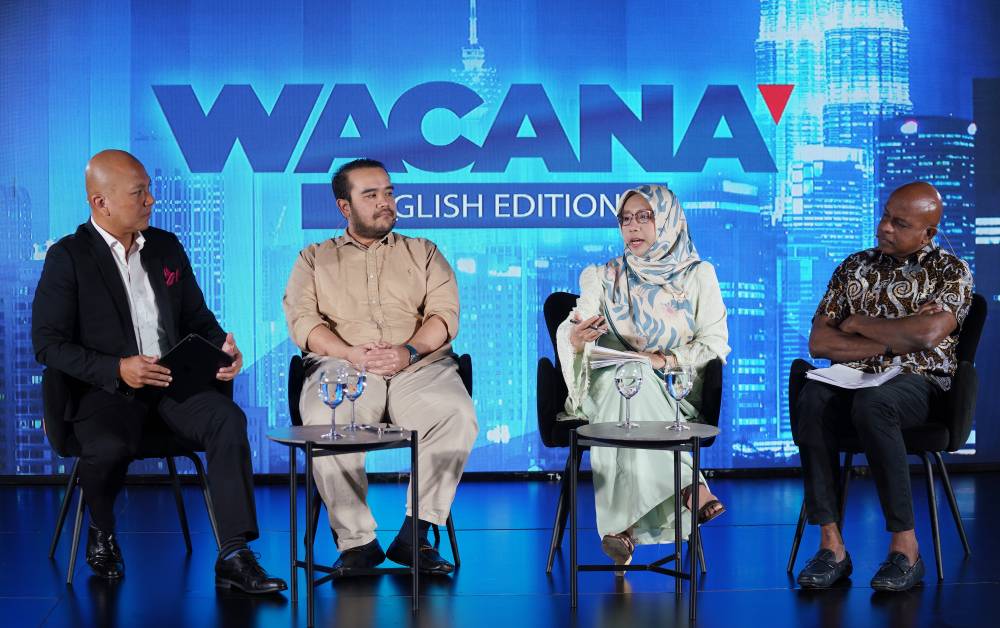Nepotism deepens Malaysia’s wealth gap, experts warn
Success or privilege? The debate over nepotism in Malaysia

SHAH ALAM - Nepotism is widening the gap between Malaysia’s rich and poor, keeping wealth and power concentrated among the privileged while limiting opportunities for those without connections.
Experts warn that this entrenches poverty and obstructs efforts toward a fairer society.
Feminomics Malaysia founder, Atyrah Hanim described nepotism as a structural issue with deep-rooted effects on social justice and economic equality.
“When we talk about nepotism, it's not just about individuals; it's systemic. It influences various structures, including education, which creates barriers for certain groups to break through,” she said during Sinar Daily’s Wacana English Edition titled “Nepo Babies: Alive and Well in Malaysia?”
She pointed to stark disparities in access to opportunities between different social classes and regions.
“The difference in access between social classes is huge. Compare someone living in Cerun Tok Kun (Bukit Mertajam, Penang), Kedah or Kelantan to someone in Mont Kiara, Kuala Lumpur—the opportunities are worlds apart,” she said.
She warned that if these inequalities are not addressed, the situation will only deteriorate.
Nepotism is also linked to Malaysia’s struggle with meritocracy and brain drain. Atyrah stated that Malaysia’s brain drain rate stands at 5.5 per cent, nearly double the global average.
“Our talents are leaving to seek better prospects because they don’t see Malaysia as a fertile ground for career growth,” she said, adding that this exodus is a symptom of deeper systemic problems.
“If we want to understand whether Malaysia’s organisational structures truly accommodate top talent, we need to ask why so many professionals are leaving,” she added.
She also stressed how nepotism reinforces cycles of poverty and wealth, widening the gap between the rich and the poor.
“The segregation between economic classes is growing and nepotism, along with cronyism, plays a significant role in this,” she said.
Referring to Karl Marx’s concepts of the bourgeoisie and petty bourgeoisie, she described how transactional relationships between political and business elites contribute to inequality.
“There’s a quid pro quo between these groups, where mentorship and access to certain socioeconomic circles are considered valuable resources. This creates a closed system that deepens social disparities,” she said.
Atyrah also pointed to Malaysia’s Gini coefficient, a key measure of income inequality, as clear evidence of the growing divide.
“The Gini coefficient in Malaysia speaks for itself. It’s not manipulated, it’s happening and we need to address it,” she said.
Meanwhile, local entrepreneur Asyraf Khalid offered a different perspective, arguing that mindset and access to technology play a crucial role in overcoming barriers.
“In today’s world, access to education and information is available. People can choose to learn because the internet, books and other resources are widely accessible,” he said.
While acknowledging that some still struggle with limited internet access, Asyraf maintained that the majority have the tools needed to succeed.
“Most people today have internet and access to education. It’s a question of whether they take action or not,” he said.
He also criticised what he called a “virus mindset” among some Malaysians, arguing that this mentality often holds people back from achieving success.
“Many think, ‘Oh, this person is from a rich background, so they can succeed.’ But in reality, it’s their own mindset that stops them. They overthink instead of taking action to improve their lives,” he said.
Asyraf also addressed perceptions of nepotism in politics, using the example of US President Donald Trump.
“In the US, Trump surrounded himself with family and Americans accepted it because they believed he was protecting their interests. But here, when Nurul Izzah, the daughter of Prime Minister Datuk Seri Anwar Ibrahim, is given a role, people question it. It’s all about perspective,” he said.
Download Sinar Daily application.Click Here!















